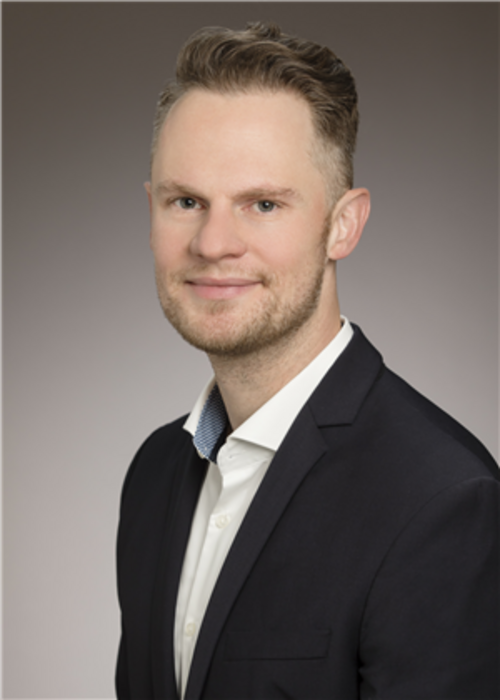An initiative led by Wolfgang Pfaff, an assistant professor of physics at the University of Illinois Urbana-Champaign, has received a $5.8 million award from the Army Research Office, a directorate of the U.S. Army Combat Capabilities Development Command Army Research Laboratory, to develop a new quantum computing architecture. Researchers will leverage fluxonium, a promising new superconducting qubit, to control and modularly connect superconducting cavities storing quantum information. A successful demonstration of communication between cavities by entangling the fluxonium qubits will give proof of principle to modular quantum computing.

Credit: The Grainger College of Engineering at University of Illinois Urbana-Champaign
An initiative led by Wolfgang Pfaff, an assistant professor of physics at the University of Illinois Urbana-Champaign, has received a $5.8 million award from the Army Research Office, a directorate of the U.S. Army Combat Capabilities Development Command Army Research Laboratory, to develop a new quantum computing architecture. Researchers will leverage fluxonium, a promising new superconducting qubit, to control and modularly connect superconducting cavities storing quantum information. A successful demonstration of communication between cavities by entangling the fluxonium qubits will give proof of principle to modular quantum computing.
“We are using next generation hardware to build a modular system that, when combined, could lead to a fully scalable quantum computer in the future,” Pfaff said.
At present, the most advanced quantum devices contain hundreds of qubits, or quantum processing units, but this is still insufficient for practical quantum computing by orders of magnitude. The challenge in scaling to larger systems is managing complexity and unwanted influences, both as crosstalk between qubits and interactions with the environment. Pfaff explained that modular platforms could achieve this by separating the qubits into smaller units that are easier to control and troubleshoot. These units are controlled by ancillary qubits that connect by quantum entanglement to form larger, more capable systems.
The initiative will lead to the development of a modular platform consisting of multimode cavities controlled by fluxonium ancillary qubits. Multimode cavities made of superconducting metals have attracted attention in recent years for their ability to store quantum information in long-lived photons, and fluxonium has been predicted to have minimal influence on cavity photons, unlike other superconducting qubits. Pfaff said that combining these two technologies could result in quantum registers with unprecedented coherence times, or periods over which quantum properties are maintained.
He went on to say, “Right now, the best superconducting qubit coherence times are around one millisecond. This is most likely not good enough for scalable quantum computing. By using high-coherence cavities and incorporating more advanced fluxonium qubits, we should be able to achieve at least a factor of 10 enhancement in coherence time and performance.”
The work will be carried out over four years at the University of Illinois, Rutgers University, and the University of Texas at Austin. The final demonstration of two multimode cavities connected by entangled fluxonium qubits will occur at the University of Illinois. This will demonstrate that it is feasible to combine even more units and create a truly scalable quantum computer, according to Pfaff.
Pfaff, an expert in long range entanglement and superconducting cavities, will work with Angela Kou, an Illinois assistant professor of physics who specializes in designing new superconducting qubit circuits; Srivatsan Chakram, a Rutgers assistant professor of physics and astronomy who studies multimode cavity quantum memories; and Shyam Shankar, a Texas assistant professor of electrical and computer engineering who specializes in quantum measurement techniques and remote entanglement generation.




